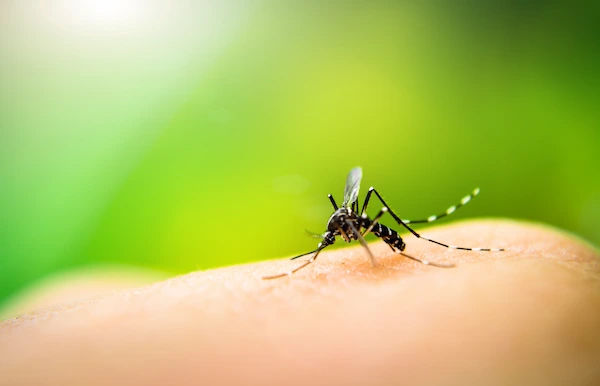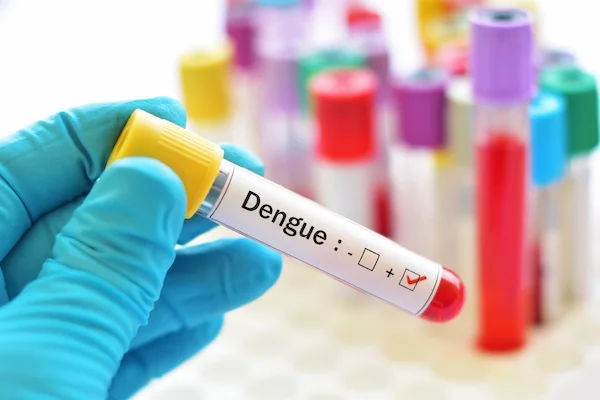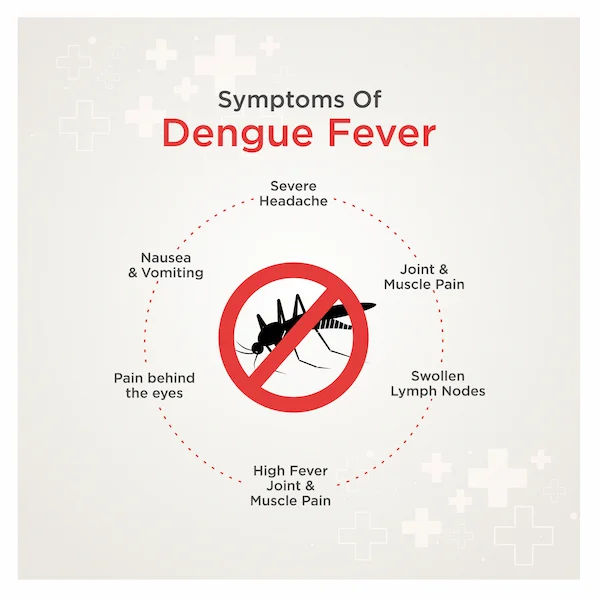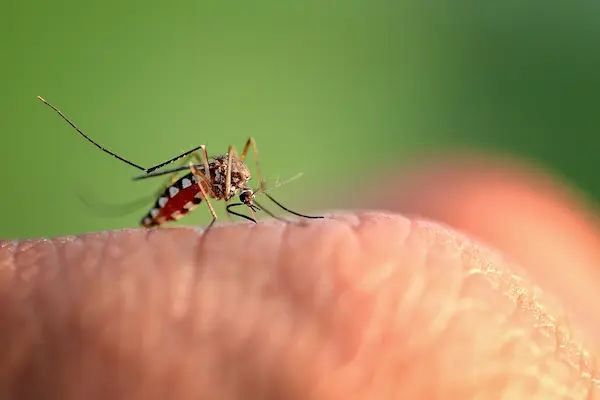Guide to Importance Getting Vaccinated
Stay healthy and protect your community. Learn why getting vaccinated is crucial for preventing diseases, building immunity, and safeguarding public health.

Written by Dr. J T Hema Pratima
Reviewed by Dr. Rohinipriyanka Pondugula MBBS
Last updated on 13th Jan, 2026

Introduction
In a world where health information is constantly at our fingertips, it can be challenging to separate fact from fiction. Yet, few medical advancements have a track record as proven and impactful as vaccination. It's a simple, safe, and effective way to protect yourself and your loved ones from harmful diseases before you ever come into contact with them. Vaccines train your immune system to create antibodies, just as it would if you were exposed to the disease, but without causing the illness itself. This article will delve deep into the importance of vaccination, exploring how it works, its incredible history of saving lives, and why it remains one of the most crucial pillars of modern public health. We'll address common concerns, highlight the concept of community protection, and empower you with the knowledge to make informed decisions for your well-being.
How Do Vaccines Actually Work? Building Your Body's Defense System
To truly appreciate the importance of vaccination, we must first understand the remarkable system it supports: your immune system.
Understanding the Immune System: The Body's Natural Army
Think of your immune system as your body's highly trained defense force. When a harmful pathogen like a virus or bacteria invades, this army swings into action. Its soldiers (white blood cells) identify the enemy, attack it, and—crucially—remember it. This "memory" is what prevents you from getting sick from the exact same pathogen again. This process is called acquired immunity.
The Vaccine as a Training Exercise: Preparing for the Real Threat
A vaccine is essentially a training simulation for your immune army. It contains a weakened or inactivated part of a specific pathogen (antigen) that cannot cause serious illness. When you get a vaccine, your immune system recognizes these antigens as foreign invaders. It mounts a response, producing antibodies and creating memory cells, all in a safe, controlled environment.
The Role of Memory Cells: Long-Term Protection
These memory cells are the key to long-term protection. They remain in your body for years, often decades. If the real, full-strength pathogen ever tries to infect you, your immune system recognizes it immediately from the "training exercise." It can then rapidly produce the correct antibodies to destroy the pathogen before it has a chance to make you sick. This is why you typically get lasting protection from vaccines without having to suffer through the actual disease.
The Dual Benefit: Why Vaccination is a Personal and Community Responsibility
The power of vaccination extends far beyond the individual. It creates a ripple effect of protection that safeguards entire communities, making it a unique personal and collective responsibility.
Consult Top Specialists for Personalised Tips
Individual Protection: Safeguarding Your Health
The most direct benefit is to you. Vaccines prevent serious illness, disability, and death from a wide range of diseases. For example, the HPV vaccine protects against cancers caused by the human papillomavirus, and the tetanus vaccine prevents dangerous bacterial infections from cuts or wounds. By staying up-to-date on your immunization schedule, you invest directly in your long-term health and quality of life.
Herd Immunity: Shielding the Most Vulnerable
This is where the community aspect shines. Herd immunity, also known as community immunity, occurs when a high percentage of a population is vaccinated. This makes it difficult for a disease to spread because there are so few susceptible people left to infect. This protects those who cannot be vaccinated, including:
Newborns are too young for certain shots.
Elderly individuals with weakened immune systems.
People undergoing chemotherapy or with specific medical conditions that prevent vaccination.
When you choose to vaccinate, you are not just protecting yourself; you are helping to form a protective shield around the most vulnerable members of your community.
A Look Back: The Profound Impact of Vaccines on Global Health
The importance of vaccines is starkly illustrated by history. Before widespread vaccination, diseases that are now rare were commonplace and devastating.
Eradicating Smallpox: A Landmark Achievement
Smallpox was a deadly, contagious disease that killed an estimated 300 million people in the 20th century alone. Thanks to a relentless global vaccination campaign led by the World Health Organization (WHO), smallpox was declared eradicated in 1980. It remains the only human disease to have been completely wiped out, a testament to the power of vaccines.
Controlling Polio and Measles: Preventing Disability and DeathIn the 1950s, polio paralyzed hundreds of thousands of children every year. Today, after decades of vaccination, polio is on the brink of global eradication, with cases reduced by over 99.9%. Similarly, the measles vaccine has prevented an estimated 31 million deaths between 2000 and 2020. These aren't just statistics; they represent millions of lives saved from disability and death.
Addressing Common Concerns: Vaccine Safety and Side Effects
It's natural to have questions about what you put into your body. Understanding the science behind vaccine safety can help alleviate concerns.
The Rigorous Vaccine Development and Approval Process
Vaccines are among the most thoroughly tested medical products available. They undergo a rigorous multi-stage process that includes:
1. Preclinical testing: In labs and on animals.
2. Clinical trials: Three phases of human trials involving thousands of volunteers to test for safety, dosage, and efficacy.
3. Regulatory review: Government bodies like the FDA in the US or the CDSCO in India meticulously review all trial data before approval.
4. Continuous monitoring: Even after approval, systems like VAERS (Vaccine Adverse Event Reporting System) constantly monitor for any rare side effects.
Common vs. Severe Side Effects: What to Expect
Most side effects are mild and temporary, a sign that your body is building protection. These include:
Soreness, redness, or swelling at the injection site.
Low-grade fever.
Fatigue or headache.
Serious side effects are extremely rare. The benefits of vaccination in preventing serious disease far outweigh the minimal risk of a significant adverse reaction.
Debunking Common Vaccination Myths
Myth: Vaccines cause autism.
Fact: This claim originated from a single, deeply flawed and since-retracted 1998 study. Numerous large-scale studies involving millions of children have found no link between any vaccine and the development of autism.
Myth: It's better to get natural immunity from the disease.
Fact: The risks of natural infection are far greater. For example, measles can lead to pneumonia and encephalitis (brain swelling), and chickenpox can lead to severe skin infections and scarring. Vaccines provide a safe path to immunity without these dangers.
Vaccines Across a Lifetime: From Childhood to Senior Years
Vaccination is not just for children. It's a lifelong journey of health protection.
The Recommended Immunization Schedule for Children
The childhood immunization schedule is scientifically designed to provide protection when children are most vulnerable to specific diseases. It includes vaccines for polio, hepatitis B, diphtheria, pertussis (whooping cough), tetanus, measles, mumps, rubella, and chickenpox, among others. Adhering to this schedule is one of the most important things a parent can do for their child's health.
Adult Vaccinations: Boosters and Age-Specific Shots
Immunity from some childhood vaccines can wear off. Adults need booster shots for tetanus and diphtheria (Td) every 10 years. Other important adult vaccines include:
Annual flu shot: Recommended for almost everyone over 6 months old.
Shingles vaccine: For adults over 50 to prevent this painful rash.
Pneumococcal vaccines: For older adults to prevent pneumonia.
Travel Vaccinations: Protecting Yourself Abroad
Traveling to different parts of the world may expose you to diseases not common in your home country. Vaccines for yellow fever, typhoid, or Japanese encephalitis are often recommended or required for entry into certain countries. If you have upcoming travel plans, consult a doctor online with Apollo24|7 to discuss which travel vaccinations you might need.
The Modern Relevance: Vaccines in the Era of Pandemics
The COVID-19 pandemic provided a real-time, global case study on the importance of vaccines.
The COVID-19 Case Study: How Vaccines Changed the Pandemic's Course
The rapid development of COVID-19 vaccines was a monumental scientific achievement. Data consistently shows that these vaccines are highly effective at preventing severe illness, hospitalization, and death. For instance, a study published by the CDC found that unvaccinated individuals were significantly more likely to be hospitalized and die from COVID-19 compared to those who were vaccinated and boosted. The vaccines dramatically reduced the strain on healthcare systems and were the primary tool that allowed societies to reopen safely.
Quick Takeaways: Key Points to Remember
Vaccines safely train your immune system to fight off serious diseases.
They provide dual protection: for you and for your community through herd immunity.
Vaccines have a proven history of eradicating and controlling deadly diseases like smallpox and polio.
They undergo extremely rigorous testing for safety and efficacy before public use.
Vaccination is a lifelong process, from childhood through our senior years.
Staying up-to-date on vaccinations is one of the simplest and most effective health choices you can make.
Conclusion: Your Health is in Your Hands
The evidence is clear and overwhelming: vaccination is a cornerstone of public health and individual well-being. It is a powerful, safe, and effective tool that has saved countless lives and prevented immeasurable suffering. From protecting newborns to safeguarding seniors, the importance of getting vaccinated cannot be overstated. It is a shared responsibility that empowers us to care for ourselves and for each other. If you have questions about your vaccination status or which vaccines are right for you or your family, don't hesitate to speak with a healthcare professional. Book a physical visit to a doctor with Apollo24|7 to review your immunization history and ensure you are fully protected. Your health is your most valuable asset—guard it with the proven protection of vaccines.
Consult Top Specialists for Personalised Tips

Dr. Rajib Ghose
General Physician/ Internal Medicine Specialist
25 Years • MBBS
East Midnapore
VIVEKANANDA SEBA SADAN, East Midnapore

Dr. Chethan T L
General Physician/ Internal Medicine Specialist
5 Years • MBBS, MD, DNB (General Medicine)
Bengaluru
Apollo Medical Center, Marathahalli, Bengaluru

Dr. Anand Misra
General Physician/ Internal Medicine Specialist
14 Years • MBBS, DNB
Mumbai
Apollo Hospitals CBD Belapur, Mumbai

Dr. Aakash Garg
Gastroenterology/gi Medicine Specialist
12 Years • MBBS, DNB (Medicine), DrNB (Gastroentrology).
Bilaspur
Apollo Hospitals Seepat Road, Bilaspur
(150+ Patients)

Dr. R Gopakumar
Internal Medicine/ Covid Consultation Specialist
31 Years • MBBS, MD(general medicine
Angamaly
Apollo Hospitals Karukutty, Angamaly
(25+ Patients)
More articles from Dengue fever
Frequently Asked Questions
Is it necessary to get a flu shot every year?
Yes, flu viruses evolve rapidly. Each year, a new flu vaccine is developed to target the strains most likely to circulate that season. Your immunity from the previous year's vaccine also declines over time, so an annual shot is needed for the best protection.
Can a vaccine give me the disease it's supposed to prevent?
No. Most vaccines (like the mRNA COVID-19 vaccines or inactivated flu shot) contain no live virus and cannot cause the disease. Some vaccines contain a weakened live virus (like the MMR vaccine), but they are designed so that they do not cause illness in healthy people.
What is the recommended immunization schedule for infants in India?
The Government of India recommends vaccines at birth (BCG, Hepatitis B, OPV), at 6-10-14 weeks (OPV, IPV, DPT, Hepatitis B, Hib), at 9-12 months (MMR, JE), and booster doses at 16-24 months and 5-6 years. Consult a doctor online with Apollo24|7 for a personalized schedule for your child.
Are there any natural alternatives to vaccines?
No. There is no scientifically proven natural alternative that provides the same specific and robust immunity as a vaccine. Relying on unproven alternatives leaves you and your community vulnerable to serious preventable diseases.
I'm an adult; how can I find out which vaccines I need?
The best way is to talk to your doctor. They can review your medical history, previous vaccination records, and lifestyle factors (like travel) to recommend appropriate vaccines, such as booster shots or the shingles vaccine. Apollo24|7 offers a convenient home collection for tests like antibody titers to check your immunity to certain diseases.




